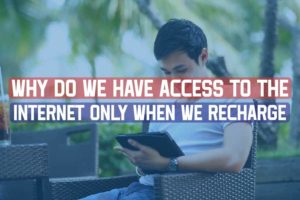
Internet is not a luxury anymore, instead of a necessity. It is a network that connects the whole world with ease, which allows billions of people across the Earth to communicate with each other. Although it was developed for military application in the 1960s, by the 1980s it was adapted for various purposes. It has transformed our way of life since then, ushering in the digital age, the age of file sharing, social media networks, digital commerce, and so much more.
You’ll need an Internet Service Provider (ISP) and a router to connect to the ISP if you want to use the internet at home. ISPs frequently include a router as part of their service. This implies that your internet connection can be used by multiple computers or devices in your home at the same time. Some devices can connect to the router through Wi-Fi. Xfinity is one to name, with their high speed and reliable Xfinity internet plans you can have an affordable connection set up at your home.
Internet: A Commodity
The Internet has changed practically every aspect of our lives, making universal, unrestricted access to it feel like an inalienable right, alongside life, liberty, and the pursuit of happiness. Who can argue with that?
The Internet has now by every definition become a commodity in every individual’s life. The Internet is essentially the same no matter who provides it. You are linked to the same Internet as I and others who are reading this post, regardless of your Internet service provider. Your access terms and charges may vary, but we all meet on the same internationally accessible communications platform.
True, there are a plethora of low-cost Internet connection options accessible; but, these come with few assurances and little assistance. Those who regard the Internet as a commodity like any other and want lower rates fail to recognize how funding fuels innovation and enables excellent service. The old saying “you get what you pay for” certainly holds in this case.
Why Pay For The Internet?
Even from the era of ARPANET members had to pay for their access. In reality, having a DARPA sponsor and a grant from a DARPA agency to fund your service installation costs was the minimum need. So the internet never was free of cost. Never in the beginning and or is it today. Everything comes with a price and cost. For instance, even for your body to function, you need to keep it full of food. The same goes with the internet connection. To keep your subscription locked and you want to stay connected to the line of connection you pay for your pathway.
Primarily it is the monetary expense of maintaining the pipes and equipment that keep the internet running, as many people have pointed out. You pay a monthly charge to an Internet Service Provider (ISP) to keep you connected to the entire internet.
Secondly, all of the infrastructures are costly, and everyone must contribute a fair amount. But it’s not just the wires; content has a price tag as well. Some of the content is provided for free by volunteers, such as Wikipedia. Advertisements pay for some of it. But, in general, if we want more content, we must pay the individuals who create it in some way.
Will The Internet Ever Be Free?
Consider paying nothing to gain access to the world’s largest repository of knowledge. There would be huge ramifications, but it appears that we are still a long way from reaching a sort of connectivity that is free to the customer. While it’s a terrific idea to have an Internet that can be utilized for free, I can’t stress enough how much money it costs to run the infrastructure that serves as the web’s backbone. Someone has to benefit from something for it to be free.
The Internet will not be free as long as there is a cost to running hardware. On that note, Wi-Fi appears to be a potential option. Hotspots pop up everywhere there are businesses, and they usually offer unrestricted Internet access for free. However, if traffic grows enough, they will have to password-protect their routers to prevent access to just paying customers. Other free Internet efforts are frequently state-sponsored, although they will be paid for with tax dollars as well.
Conclusion
A free Internet cannot exist universally at this time in history, yet there are numerous areas where it is a reality and people are using it. Connectivity is still a long way off in locations where it matters, such as distant communities. So it makes sense if you think that it is the maintenance and the roadway that you are paying for, just like paying toll tax while traveling.








